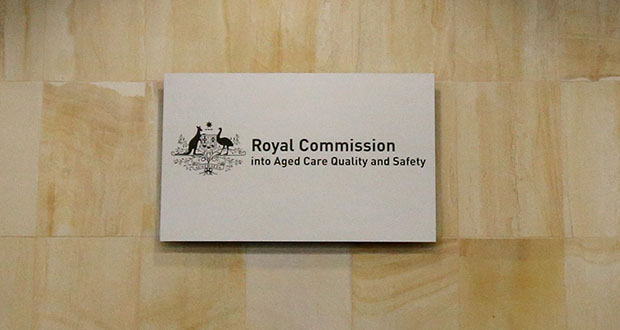The royal commission has heard from Heather Brown who described her fear of entering the “confinement” of aged care, which she and other Forgotten Australians see as another institution.
Brown, 79, was taken as a ward of the state at the age of two and was sexually abused during her time in institutions. As a result, the idea of entering traditional aged care worries her.
“I would be terrified if someone told me I had to move into a residential aged care facility. I would resist it, not literally but I would fight it. I see aged care facilities as institutions just like the ones I grew up in,” she read to the commission from her statement.
“They are exactly the same to me. I don’t like the idea of confinement and the lifestyle. I think it would cause me to have flashbacks of my time in care as a child. It would be like living it all over again. Unless there is no other option, I don’t want to have to go into an aged care facility.”
Brown currently lives in a retirement facility in Queensland and worries that when the time comes for her to move to aged care, homes will not understand the complex trauma that Forgotten Australians suffer.
She believes there should be special training for aged care workers to deal with trauma victims to help them understand.
“Training would help workers understand how to handle a situation with a Forgotten Australian who might be triggered or distressed. Some common triggers for Forgotten Australians can be shouting or speaking loudly, touch, confined spaces in lifts, bathrooms, police presence or assistance with personal care,” she said.
Brown would also like to see a specific agency that would liaise between My Aged Care and Forgotten Australians as many have trepidation getting the process started.
“Most of us are now in our 60s, 70s and 80s, and all these people are going to need aged care soon, but they have no understanding of what it is about,” she said.
“Forgotten Australians need help understanding. Additionally, Forgotten Australians need information regarding other entitlements to age pensioners, whether living independently or in a care facility.”
An aged care volunteer gave testimony and told the commission of the discrimination she has faced as a lesbian throughout her life, including now as an aged care volunteer. She, much like Brown, wants more sensitivity and awareness in the aged care space.
The woman, referred to only as Malloy, described uncomfortable meetings with the facility's nurse manager where she was asked to stop visiting residents.
The manager eventually told an aged care rights advocate: "We don't have people like that here."
“This facility has done nothing to promote an LGBTIQ-inclusive culture," she told the commission. "I am not aware of the staff undertaking any specific training to help educate them on the needs of LGBTIQ people.
“This discrimination has had a significant impact on me. It has brought back memories of younger days.
“I was involved in a poster with the national LGBTIQ Health Alliance which clearly announces that LGBTIQ people are welcome here. Something like this should be clearly displayed at the front door of all residential care aged care facilities.”
Elizabeth Karn, who is profoundly deaf, talked about the issues the deaf face when accessing aged care. She told the commission that she and her husband, both over 65, are too old for the NDIS and were directed to My Aged Care, only to be told that My Aged Care does not have interpreter services for Auslan sign language, which Karn described as discrimination in her statement.
“I feel the government has taken away the basic human right for deaf elders over the age of 65 and that is our right to communicate using an Auslan interpreter."
Aboriginal Elders Uncle Brian Campbell and Uncle Brian Burch appeared together to highlight the importance of culturally appropriate aged care.
The men spoke about their life experiences, Campbell as a member of the Stolen Generation and Birch, whose family hid his Aboriginal heritage for fear he too would be taken away.
The men currently live in the Aboriginal Community Elders Service (ACES) but both say they wouldn’t like to live anywhere that was a “non-Aboriginal-and Torres-Strait-Islander-specific facility”.
“Nope. No way,” Uncle Campbell said.
“Because I’ve got my parents, who live in... aged care – I wouldn’t even send my dog to it.”
As their testimony ended, Uncle Campbell turned the questions to the commission.
“I’ve sat with the royal commission into deaths in custody. I’ve sat with the Bringing Them Home hearing; right? And out of all of them, hardly anything gets done, and is this one going to be the same?” he asked.
Commissioner Tony Pagone replied: “Well, I certainly hope this is one that does get something done. That’s our intention, that something gets done, and that’s why we are gathering your stories and the stories of others."
“Deaths in custody – they had 50 recommendations, and only three of them [have] actually been [implemented] – and that’s over 10 years ago,” Uncle Campbell continued.
“Yes. I’m pleased you asked the question, Uncle Campbell, and we might put that in the report when it comes out, the need for something to be done and that people like you come to these commissions to share your stories so that something gets done,” said Pagone.
The commission continues this week.
Do you have an idea for a story?Email [email protected]
 Aged Care Insite Australia's number one aged care news source
Aged Care Insite Australia's number one aged care news source

